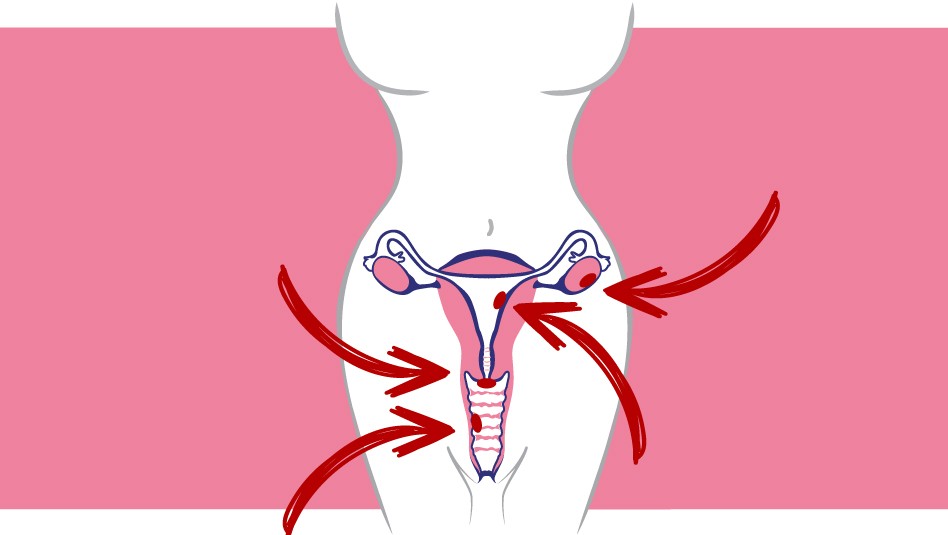Gynecological Cancer
What is gynecological cancer?
Is a type of cancer that begins in the organs of the reproductive system of women. It can affect the cervix (neck of the uterus), ovaries, uterus, vagina and vulva. Another case is the gynecological cancer of the fallopian tubes, although it is quite rare. Each of these cancers presents different symptoms and risk factors. Although all women can contract them, in most of them the risk increases with age. Early diagnosis is essential for the treatment to be effective.
Prevention and diagnosis
Some gynecologic cancers are caused by the Human Papilloma Virus (HPV), a term that includes several viruses that cause infection in the genital area and are transmitted sexually. Infected does not mean that a cancer develops, as in most women the infection will not cause more problems. However, in some women it can cause cancer of the cervix, vagina and vulva.
Gynecologic cancer can be detected through cervical-vaginal cytology (Pap smears), which take place regularly in women from initiating sex until about 65 years. You can also perform a test to see if the woman is infected with HPV.
The best prevention against cervical cancer is the vaccine that protects against the virus, which is recommended for girls 11 to 12 years. The women also can receive 13 to 26 years who have not previously received.
Various types of gynecological cancer
- Cervical cancer
The cervix is the canal that connects the vagina to the uterus, where the baby grows during pregnancy. Cervical cancer is preventable in most Western countries thanks to the HPV vaccine and screening tests. When detected early, it has a high cure rate. Usually it occurs in women over 30 years. One symptom is vaginal bleeding, for example, after a sexual relationship.
- Ovarian cancer
Ovarian cancer, the organs that produce female sex hormones and ovules, usually occurs more often in women aged 60 years or more. There are a number of risk factors: age, have close relatives who have had it, have had breast, uterine or colon cancer, not having children, endometriosis, and genetic mutation BRCA1 or BRCA2. Its symptoms include bleeding between periods, pelvic pressure, abdominal pain or lower back, bloating, etc.
- Uterine cancer
Among the risk factors for cervical cancer are: obesity, being over 50, having relatives who have had uterine, ovarian or colon cancer. Most of these cancers occur in women who are menopausal or postmenopausal. Symptoms may be vaginal bleeding or unusual discharge, difficulty urinating, pain or pelvic pressure and pain during intercourse.
- Cancer of the vagina and vulva
Cancer of the vagina and vulva are rare. Among the risk factors is infected with HPV, have had cervical cancer, smoking, chronic irritation or burning in the vulva. Your symptoms may be vaginal bleeding or unusual discharge, frequent urination, constipation, blood in the urine or stool, pain or pressure in the pelvis or abdomen, especially during urination or intercourse.
- Uterine sarcoma
Uterine sarcoma or leiomyosarcoma is rare. The incidence is usually between 3% and 5% of all uterine tumors. Adenocarcinoma of the uterus, uterine body cancer is the most common of the female pelvis and its incidence has increased in recent years.
Cancer treatment is personalized and individualized to the type of tumor and each patient. Our gynecologists make the cancer diagnosis and work with professionals to determine the best course of treatment.

